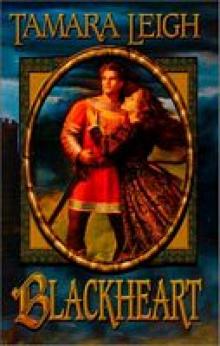- Home
- Tamara Leigh
LAWLESS: A Medieval Romance (AGE OF CONQUEST Book 7)
LAWLESS: A Medieval Romance (AGE OF CONQUEST Book 7) Read online
LAWLESS
Book Seven: Age of Conquest
Tamara Leigh
Tamara Leigh
THE WULFRITHS. IT ALL BEGAN WITH A WOMAN.
A battle. A crown. The conqueror. The conquered. Medieval England—forever changed by the Battle of Hastings. And the rise of the formidable Wulfriths.
THE CONQUEROR’S MAN
Having lost all—the woman he loved, great friendship, and lands—Sir Guy wants only to end the insurrection plaguing England. But being the conqueror’s man puts him at odds with his conscience when a disastrous siege against the resistance yields only one thing of value—his capture of a Saxon rebel known as the virgin widow. As Norman forces regroup, Guy finds himself drawn to one who could not be more different from the love he lost. Though he assures himself it is only admiration for her strength, it proves more when his defense of her leads to a kiss. Though he assures himself it is only attraction, it proves more when the pawn his king makes of her nearly sees her lost to him. Is it possible this lady was his story all along? If so, will all that conspires against them leave him more empty-handed than before?
A LAWLESS LADY
Cousin to one whom Normans name Hereward the Outlaw and Saxons hail as the Last Great Englishman, Lady Vilda is determined to support the resistance even if it costs her life. And it nearly does. Pulled from the marsh half-drowned by the chevalier she escaped months earlier, she discovers he is a rare Norman when he shields her from his king’s wrath. Still, William the Conqueror has games to play, and as she has nothing left to lose, she decides to move her pieces well even if it offends. Surprisingly, she earns her greatest enemy’s admiration. More surprisingly, she finds her heart turning toward Sir Guy. But though his embrace tempts her to believe he is not beyond her reach, she knows gaining his love is as impossible as counting the stars. And that the still inside her that waits on him will wait forever.
Set in the Fenlands during the English resistance’s last great stand against the conquerors, the seventh book in the AGE OF CONQUEST series delivers the long-awaited tale of Sir Guy and the lady who became his story. Watch for DAUNTLESS, the eighth and final book, in Autumn 2021.
For new releases and special promotions, subscribe to Tamara Leigh’s mailing list: www.tamaraleigh.com
LAWLESS: Book Seven (Age of Conquest) Copyright © 2021 by Tammy Schmanski, P.O. Box 1298 Goodlettsville, TN 37070 [email protected]
This novel is a work of fiction. Names, characters, places, incidents, and dialogues are either the product of the author’s imagination or are used fictitiously. Any resemblance to actual events, locales, organizations, or persons, living or dead, is entirely coincidental and beyond the intent of the author.
All rights reserved. This book is a copyrighted work and no part of it may be reproduced, stored, or transmitted in any form or by any means (electronic, mechanical, photographic, audio recording, or any information storage and retrieval system) without permission in writing from the author. The scanning, uploading, and distribution of this book via the Internet or any other means without the author’s permission is illegal and punishable by law. Thank you for supporting authors’ rights by purchasing only authorized editions.
Cover Design: Ravven
Ebook ISBN-13: 978-1-942326-52-6
Paperback ISBN-13: 978-1-942326-53-3
Contents
Prologue
Chapter 1
Chapter 2
Chapter 3
Chapter 4
Chapter 5
Chapter 6
Chapter 7
Chapter 8
Chapter 9
Chapter 10
Chapter 11
Chapter 12
Chapter 13
Chapter 14
Chapter 15
Chapter 16
Chapter 17
Chapter 18
Chapter 19
Chapter 20
Chapter 21
Chapter 22
Chapter 23
Chapter 24
Chapter 25
Chapter 26
Chapter 27
Chapter 28
Chapter 29
Chapter 30
Chapter 31
Chapter 32
Chapter 33
Chapter 34
Chapter 35
Epilogue
Author’s Note
Dauntless Excerpt
Pronunciation Guide
Glossary
Also by Tamara Leigh
About the Author
The king’s heart is in the hand of the LORD, as the rivers of water: he turneth it whithersoever he will. Every way of a man is right in his own eyes: but the LORD pondereth the hearts. To do justice and judgment is more acceptable to the LORD than sacrifice. ~ Proverbs 21:1-3
Prologue
The Fenlands, England
Late Spring, 1071
Could she stick a blade in a man? This time do what she failed to do four years past? This time be the one who did not hesitate to take life? This time not be the one responsible for the death of a loved one?
Holding a whimper behind her lips, one hand convulsing on the dagger at her hip, the other gripping the rail of the boat alongside which she knelt in mud, Vilda peered across fairly level ground at the northernmost camp whose position remained known only by the glow of the Norman invaders’ warming fires—as it ought not.
Though under attack, the bursts of fire on all sides of the camp had yet to be seen and, she feared, were not forthcoming. More frightening, the foray was not to have lasted this long. As with most night raids, this one’s purpose was to harass the enemy by slipping past their patrol and putting down those who caught sight of rebels who excelled at setting alight supplies and disrupting the sleep of warriors already disheartened by the inhospitable Fens.
Most frightening of all was the defenders’ shouts and cries were punctuated by the clash of blades, evidencing some of the voices belonged to rebels who should be here now, sending the flat-bottomed boat gliding back across the river toward their refuge, the Isle of Ely.
Hand quaking on her dagger, Vilda beseeched the Lord to give strength and discernment to her countrymen, ensuring they prevail over the forces of he who had crowned himself King of England—William the Conqueror, better known to the conquered as Le Bâtard.
Whether or not in answer to prayer, there was a shift in the battle between Saxons and Normans. Though shouts continued to sweep across the night to where she shivered in water lapping at her waist, no longer were they accompanied by the clang of steel.
Holding her breath, she searched for figures moving her direction, which would be more easily seen had her cousin and his men succeeded in setting fires.
They had escaped the confrontation, she assured herself. Though some would be injured, making it difficult to negotiate the dark ahead of their pursuers, they came toward her. Or did they?
In their desperation to escape, they might go wide of where they had disembarked, but if she—
Nay, you were given one task—to stay with the boat, she reminded herself. And you promised.
“Pray, Hereward,” she rasped, “come.”
As she waited, wondering if as many minutes passed as it felt, once again she was tempted to leave the boat. She would go no farther than the bank where better she could see any moving toward the river and, if needed, alert them to her position.
Removing her hand from the dagger, she touched the mud her cousin had smeared on her face to hide the pale lest it catch an enemy eye—the same he and his men had done before the boat carried them from Ely—and discovered what made he
r skin itch had dried and begun to crack and peel.
Having accompanied Hereward and his men to the dock where the youth who was to remain with the boat began coughing, Vilda had offered to go in his place lest his malady reveal the presence of rebels to those on vessels blockading the isle or patrolling the shore before which Normans encamped. To avoid the delay of sending for another youth, which could jeopardize the foray whose timing was imperative, her cousin had agreed.
“And you promised to do as told,” she whispered even as she pushed the boat’s bow deeper into mud to anchor it. Continuing to grip the rail to leverage out of sludge sucking at her knees, she moved bent legs up the bank and onto grass.
As she reached for more mud to ensure her face remained hidden, above the distant sound of angry Normans in disarray she heard movement—that of men running through grass slapping at legs and soft soil squelching beneath boots. Hopefully, they were the rebels, though likely the enemy came behind.
Vilda searched the land. There! Farther left than they ought to be, men moved at a good pace though not as rapidly as they would were they uninjured. Since they made for the shore, they must be those she awaited.
“Lord, let them be my own,” she breathed. Then lest seconds prove the difference between escape and capture, she decided it was more important she was seen than not, even if by Normans.
Lurching to her feet, hearing the skirts tied up around her thighs suck at water from which they emerged, she dragged an arm across her face to expose more of the pale, thrust arms high, and waved.
If she must, she would add voice to alerting the rebels to the need to alter their course. Blessedly, they veered toward her. Eight, she counted. Only eight, meaning five had fallen.
Nay, three, two others following at a distance—unless they were Normans.
She waved more vigorously, and when the rebels were near enough she was certain the stout one at the fore was her cousin, she swung around and thrust her weight against the bow to get the craft off the mud. When it floated free, she sprang over the side, retrieved a pole, and jabbed it down through the water into mud to steady the boat for boarding.
Moments later, Hereward was there. Though the night was dim with little moon and his tunic dark of color, she knew he wore blood, hopefully the enemy’s alone.
Sparing her no word, he thrust his sword in its scabbard, then splashed into the water, took hold of the boat to further steady it, and commanded the others aboard. As they clambered over both sides to prevent the vessel from capsizing, Vilda knew from their groans and curses which among them wore their own blood. And felt that stickiness across the back of a hand when one took the pole from her and told her to get low.
“Almighty, he is down!” Hereward snarled as she started to hunker between two benches, then he sprang onto the bank and ran to the man who had dropped to his knees. But those figures bringing up the rear who Vilda had hoped were two of the five missing rebels were not. As they drew dangerously near, she could hear the ring of chain mail and see bits of light glance off it.
She stepped over a bench to the bow. When she saw the Norman running ahead of the other gave her cousin too little time to heft his man onto his shoulder and get him to the boat, she cried, “They come, Hereward!”
He turned from his injured comrade, once more brought his sword to hand, and ran forward.
“Non, Jacques!” shouted the Norman at the rear. “To me!”
But the one nearest Hereward, whom she guessed a youth when his shout cracked as did voices which had yet to attain a man’s full register, kept coming.
“To me, Jacques!” the command sounded again, and when Vilda looked to the warrior whose accent was not as thick as some but voice deeper than most, she glimpsed more Normans beyond him. The only good of it was the latter were distant enough it was possible Hereward could put down these two and be well off shore before the others arrived.
The youth gave another cracked battle cry, then swung his blade in an attempt to take her cousin’s sword arm.
Unsurprisingly, Hereward evaded it by ducking, pivoting, and sweeping up his own blade. Still Vilda feared for him—and more when he was the one to land a blow to that limb which meant all to a warrior. Though his victory caused Jacques to lose hold of his sword and grip his bleeding arm as he fell, it gave her cousin little time to defend against the second Norman.
Pray, not too little, she silently pleaded as she looked between Hereward and the one who would surely prove formidable, being a man of good height and breadth and moving with ease despite the weight of mail that evidenced the rigor and discipline to which he subjected his body.
When Hereward did not run at that warrior, she knew it was not for lack of courage. He wished to meet at swords—to beat out frustration, anger, and hatred on another Norman—but he had to know if he did not get his injured comrade aboard, he would be overwhelmed by more of the enemy. And those who would not leave without him, including Vilda, would be captured.
Wrenching his injured opponent upright, her cousin hooked a tattooed arm around the neck of one who convulsed with silent tears as he cradled his sliced limb, then Hereward set his blade across the youth’s abdomen.
The second Norman ceased his advance.
“What remains of me and mine are leaving here as whole as possible,” her cousin announced in Norman-French to the one who faced him, sword drawn and poised to attack. “If you and this lad wish to do the same rather than be granted a warrior’s death, you will take this Jacques before his innards spill, and I will take my man and go back to my isle.”
The Norman whose mail hood was down around his neck, revealing enough of his face Vilda could see he was lightly bearded, glanced behind—to gauge how soon his fellow Normans would arrive, she thought as she glimpsed in profile dark hair on a broad brow, a boldly straight nose, and a firm chin.
Following his gaze, she saw the other Normans would not arrive as soon as they would if the slam of blades yet guided them here.
Silently, she thanked the Lord. Though still the enemy came and looked to be a half dozen, they were as far left as the rebels had been before she showed herself.
“You trust me to honor such a bargain?” the chevalier asked, not in Norman-French but the language of the Saxons, his depth of voice and accent across words that belonged to her making her shiver harder.
Reverting to his own language, Hereward said, “As I know you to be one who is not as Norman as your countrymen, I trust you as much as it is possible to trust an enemy.” He shifted sideways to cast more light on the blade against the young man’s abdomen that could see yet another conqueror buried in the Fens, though likely Saxons would be interred here as well. “Now ere I do what cannot be undone, decide if you wish to save your squire, Sir Guy Torquay.”
Vilda startled. She knew his name for the necessity of avoiding the elite force he commanded. Though they numbered fewer than others, making their small camp appear vulnerable, that had been disproved several times to the detriment of rebels who slipped in to take lives and wreak havoc but could not slip out—at least without having something with which to bargain.
Torquay did not sacrifice his men, even if he must trade several rebels for one Norman. Thus, Hereward was counting on him to value a foolish squire above the leader of the resistance and his men—and cousin, though that last could not be known even had Vilda removed all the mud and there was adequate light to look well upon her where she leaned forward in the bow, one hand on the rail, the other her dagger. For a moment, she thought it possible he did look upon her, though likely it was the others toward whom he turned his face, those yet whole of body having drawn blades the same as she.
“Release Jacques and take your injured,” the chevalier said, though his stance and sword remained at the ready. “And be quick about it, Hereward.”
Thrust forward, the squire staggered sideways and fell to his knees before his lord.
“Does the Norman not turn deceitful, leave him be!” Hereward comma
nded his men, then hefted the slack rebel who, God willing, had only lost consciousness.
He did not will it, as told by her cousin after passing the rebel to two of his men and springing into the boat. “He is gone from us,” he rumbled, causing Vilda to falter as she moved to give aid. “As soon as he was on my shoulder, I knew him for dead. Now pass me those oars.”
Having turned from the bow that poles had pried from the mud, Vilda stared at the one laid between two benches. She knew him as she knew all those here—and his kindness. He was ten years older than she and protective when men showed her unwelcome attention that crossed the line between civility and flirtation. Had he intervened in hopes of gaining her attention for himself, it had not been obvious. Now he was dead like so many others these five years.
Do not yield to hatred, Vilda told herself. Cover him, take his hand, and sit beside him as he passes over waters last traversed while still he breathed.
She resisted a moment longer, then turned back into the bow that shuddered as the boat moved through dense reeds that, though easier to negotiate than mud, could still be their undoing.
Torquay had his squire in his arms, and as he turned toward the Normans nearly upon him, she threw her dagger. Anger made her do it despite awareness there was too much distance between them to make her mark. Or perhaps that was why she did it—to prove she could stick a blade in a man, even if it was all a lie.

 FEARLESS: Book Two: Age of Conquest
FEARLESS: Book Two: Age of Conquest BOUNDLESS: A Medieval Romance (AGE OF CONQUEST Book 6)
BOUNDLESS: A Medieval Romance (AGE OF CONQUEST Book 6) Lady Betrayed
Lady Betrayed Merciless
Merciless Nowhere, Carolina
Nowhere, Carolina Virgin Bride
Virgin Bride Blackheart
Blackheart Restless in Carolina
Restless in Carolina THE AWAKENING_A Medieval Romance
THE AWAKENING_A Medieval Romance Baron of Blackwood
Baron of Blackwood Leaving Carolina
Leaving Carolina HEARTLESS: A Medieval Romance (Age of Conquest Book 4)
HEARTLESS: A Medieval Romance (Age of Conquest Book 4) Baron of Godsmere
Baron of Godsmere Lady Of Eve
Lady Of Eve LAWLESS: A Medieval Romance (AGE OF CONQUEST Book 7)
LAWLESS: A Medieval Romance (AGE OF CONQUEST Book 7) Lady Of Fire AKA Pagan Bride
Lady Of Fire AKA Pagan Bride The Yielding (Age of Faith)
The Yielding (Age of Faith) The Redeeming: Book Three (Age of Faith)
The Redeeming: Book Three (Age of Faith) LADY UNDAUNTED: A Medieval Romance
LADY UNDAUNTED: A Medieval Romance THE RAVELING: A Medieval Romance (Age of Faith Book 8)
THE RAVELING: A Medieval Romance (Age of Faith Book 8) LADY EVER AFTER: A Medieval Time Travel Romance (Beyond Time Book 2)
LADY EVER AFTER: A Medieval Time Travel Romance (Beyond Time Book 2) Dreamspell
Dreamspell The Unveiling (Age of Faith)
The Unveiling (Age of Faith) THE RAVELING
THE RAVELING Splitting Harriet
Splitting Harriet Age of Faith 4 - The Kindling
Age of Faith 4 - The Kindling THE RAVELING_A Medieval Romance
THE RAVELING_A Medieval Romance Perfecting Kate
Perfecting Kate Misbegotten
Misbegotten THE VEXING: A Medieval Romance (AGE OF FAITH Book 6)
THE VEXING: A Medieval Romance (AGE OF FAITH Book 6) LadyOfConquest:SaxonBride
LadyOfConquest:SaxonBride